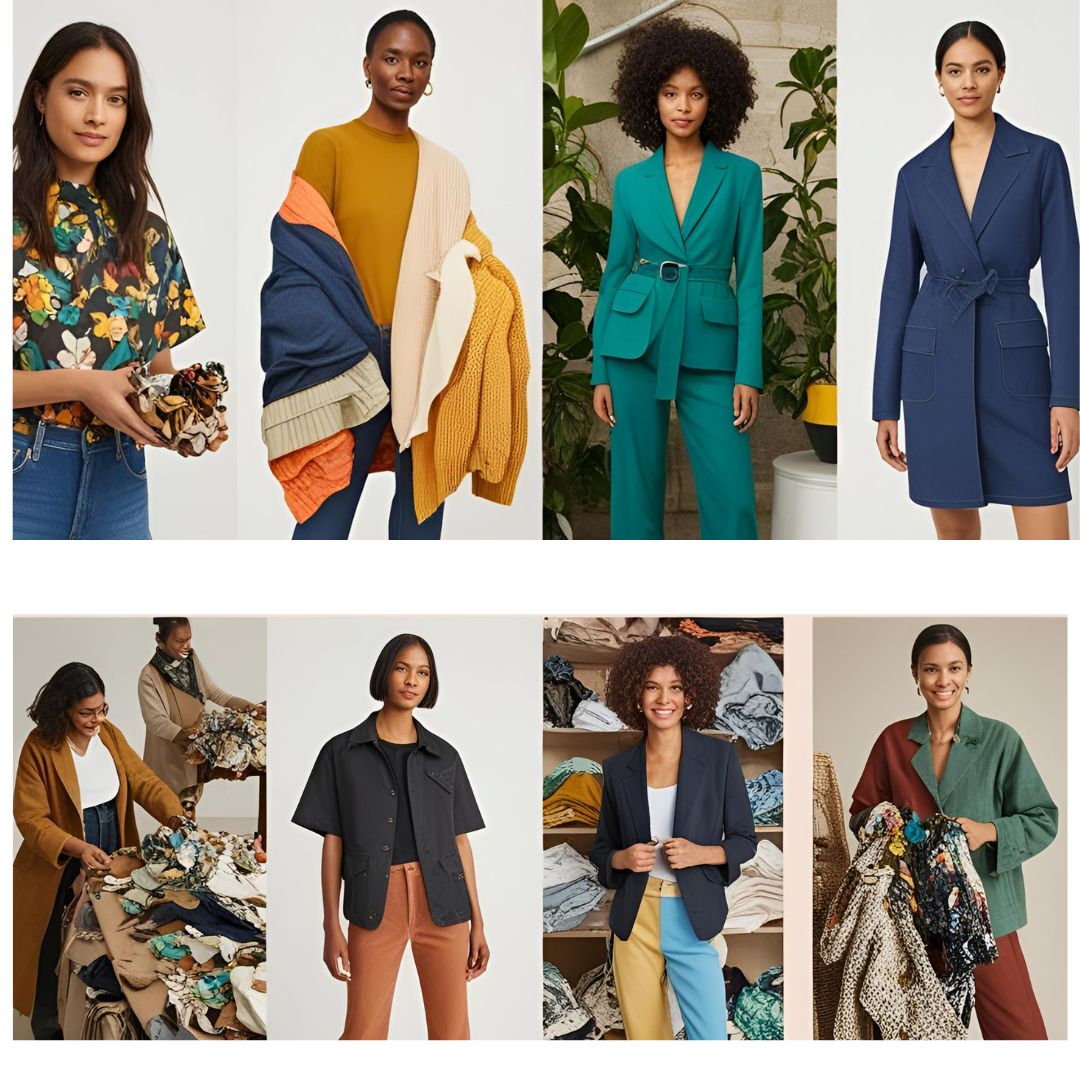With the growing awareness of the environmental impacts of the fashion industry, local brands are standing out for their innovative initiatives that promote the reuse of textiles. These actions not only help reduce waste but also encourage the circular economy and strengthen the connection with the community. From upcycling workshops to clothing swap fairs and partnerships with recycling cooperatives, local brands are playing a crucial role in transforming the sector. In this post, we’ll explore some of these initiatives that are making a difference in sustainable fashion.
Upcycling as a Form of Transformation
Upcycling, which involves transforming old clothing and materials into new products of higher value, has gained momentum as one of the most popular practices among local brands. Many brands are hosting upcycling workshops, where participants can learn to turn old, worn-out clothes into unique and modern pieces.
These workshops not only educate consumers on the value of repurposing textiles but also encourage creativity and sustainable design. Brands like [local brand name] in cities like São Paulo and Rio de Janeiro have been pioneers in creating immersive experiences for those wanting to learn how to refurbish and personalize clothing, giving them a new life.
In addition to creating unique products, these initiatives help reduce the need for new fabric production, which minimizes the environmental impact of textile production. Participating in an upcycling workshop is not only a way to save money and renew your wardrobe but also a way to support local and sustainable fashion.
Clothing Swap Fairs: Conscious Fashion and Community
Clothing swap fairs are another excellent initiative that many local brands have embraced. At these fairs, people can trade their used clothes for new pieces without spending money, promoting more responsible consumption. Moreover, these fairs create a space for exchange and collaboration within the community, strengthening the bond between consumers and local brands.
Fashion brands like have organized events where participants can bring clothes they no longer wear and swap them for others that fit their style, all within the concept of conscious reuse. These fairs, often held in cultural centers or public squares, are an excellent opportunity for people to renew their wardrobes in an economical and environmentally responsible way.
In addition, clothing swap fairs help reduce the demand for new clothing and decrease the environmental impact of production and textile waste. By supporting these initiatives, consumers contribute to waste reduction and promote circularity in the fashion industry.
Partnerships with Recycling Cooperatives
Increasingly, local fashion brands are teaming up with cooperatives and community organizations that specialize in the collection and recycling of textiles. These partnerships help ensure that used clothing and textile materials are properly recycled, preventing them from ending up in landfills.
Brands like [local brand name] in [city name] have partnered with recycling cooperatives to collect and process clothing that can no longer be reused. These materials are then transformed into new products, such as pillows, bags, or new fabrics. In addition to helping reduce waste, these partnerships provide an opportunity to value the work of cooperatives and local communities.
Recycling cooperatives play an essential role in sustainability by ensuring that used clothes are processed in an environmentally responsible manner. These initiatives contribute to the circular economy, where materials are continually reused, creating a more sustainable consumption cycle.
The Impact of Local Initiatives
The textile reuse initiatives promoted by local brands have a significant impact on both the environment and the local economy. By focusing on material reuse and promoting sustainable practices, these brands not only reduce the environmental impact of the fashion industry but also help strengthen local communities.
Moreover, these actions encourage consumers to adopt a more conscious lifestyle while creating new job and income opportunities for local workers. The positive impact of these initiatives goes beyond fashion: they are creating a movement that values sustainability, the circular economy, and collaboration between brands and consumers.
How to Get Involved and Support Local Sustainable Fashion Brands
There are many ways to get involved and support local brands that promote textile reuse and clothing recycling. Participating in upcycling workshops, attending clothing swap fairs, or supporting brands that partner with recycling cooperatives are just a few options.
In addition, you can follow these brands on social media to stay updated on events and initiatives they are promoting. Many local brands also offer discounts or benefits for those who donate clothes or participate in their sustainability actions, making it even easier to get involved.
Adopting conscious consumption and supporting local initiatives not only benefits the environment but also contributes to creating a fairer and more sustainable economy. By engaging in these practices, you are helping build a more responsible future for fashion
Local fashion is playing a crucial role in promoting sustainability and fighting textile waste. With initiatives such as upcycling workshops, clothing swap fairs, and partnerships with recycling cooperatives, local brands are showing how it is possible to create a more conscious and responsible consumption cycle. By supporting these initiatives, consumers not only help reduce environmental impact but also contribute to strengthening local communities and building a more sustainable future for fashion.












